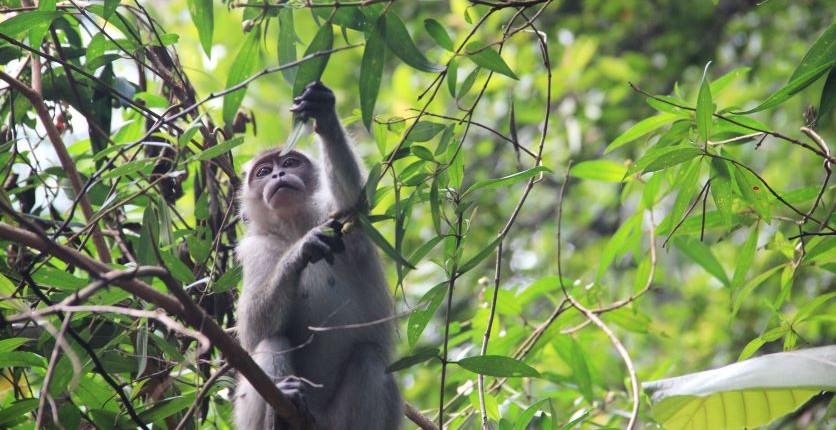Attacks by wild animals have been on the rise in Singapore. This month, a 40-year-old man was hospitalised after being attacked by a wild boar while walking his dog in Bukit Panjang, and earlier this year, crows attacked 10 people in 20 minutes in Bishan. In 2021, a British man was pounced upon and bitten by otters in the Botanic Gardens; he later received stitches for more than 20 wounds.
Our island has a rich biodiversity and we may come across various wild animals in parks or while hiking, but it’s not uncommon for these curious creatures to find their way into urban and residential areas, too.
But what would you do if you came face-to-face with a wild boar or if an otter or macaque entered your home? How can you protect yourself, your property and your pets from these animals without harming, scaring or provoking them?
Heed these useful tips from NParks:
1. They may look cute, but remember, they’re feral animals
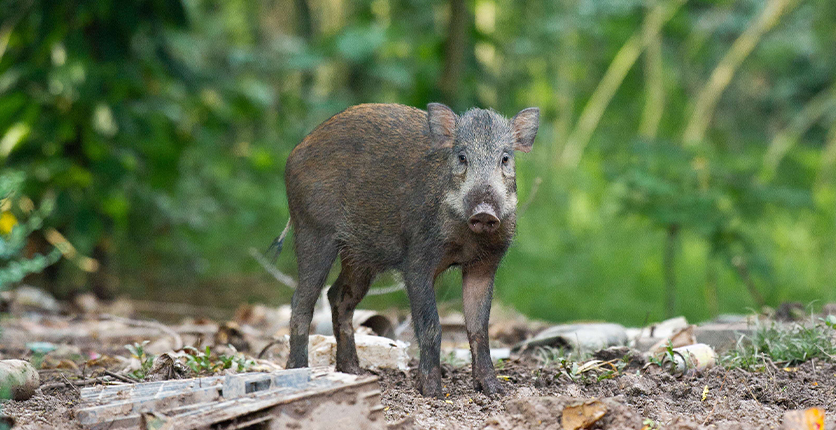
It’s tempting to want to approach a wild animal, especially if it’s wandered into a public area like a housing estate. But even if your intentions are good, the last thing you should do is get too close to it, or worse, pet it, pick it up or try to move it back into its natural habitat.
Wild boars, for example, are unpredictable in their behaviour and pose a risk to public safety, according to NParks. They may attack if they feel cornered or threatened, and female wild boars, in particular, are protective of their young and easily provoked. These strong animals also have super-sharp teeth that can inflict serious injury.
If you encounter a wild boar, stay calm, move slowly away from it and avoid cornering or provoking it (such as by using flash photography, hitting it with a stick or throwing stones at it).
2. Keep wild animals away from your home

If you live in a landed property, watch out for wild boars, monitor lizards and macaques. For starters, don’t leave food lying around where the animal can access it (don’t leave prayer offerings outside, for instance). Keep your windows and doors locked, and if you have fruit trees, harvest or conceal the fruit with cloth or mesh.
Watch out for damage to your fences, too. Wild boars are powerful diggers and may damage fences as they forage for food. Make sure your fences are made from a sturdy material, like galvanised steel with a solid concrete base dug into the ground, and that they are well-maintained.
If you have garbage bins outside your home, secure the lids with an elastic strap or bungee cord. And keep the area around your house, such as your lawn, litter-free, to avoid attracting macaques and wild boars.
3. Don’t feed the wildlife
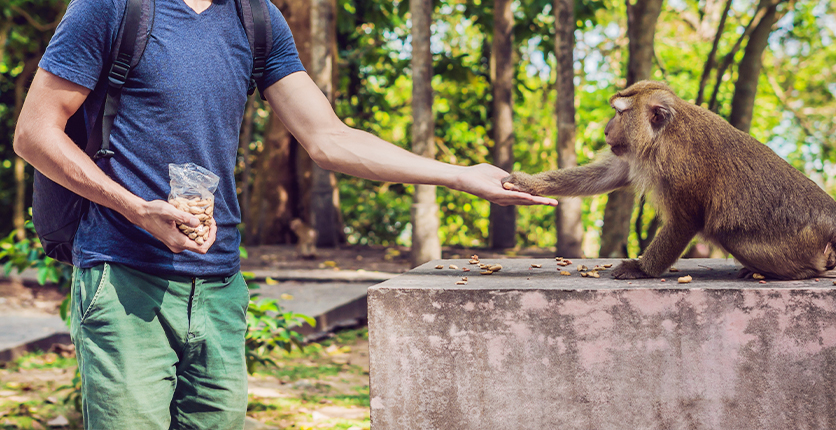
You may think you’re helping them – and it probably makes you feel good, too – but giving food to wildlife encourages them to become dependent on people for survival and alters their natural behaviour in the wild. Additionally, wild animals have specialised diets, and certain foods that you think they may like, such as bread, are simply not good for them.
The animals’ natural eating habits keep their ecosystems healthy. Macaques, for instance, help with seed dispersal through their consumption of fruit found in the forest and defaecation as they move around the forest.
4. Keep your dog on a tight leash when outdoors

If you’re walking or hiking with your dog, make sure it’s on a tight leash. This not only keeps your pet safe; it also stops it from chasing wild animals and scaring them in the process.
5. Avoid talking loudly or making noise
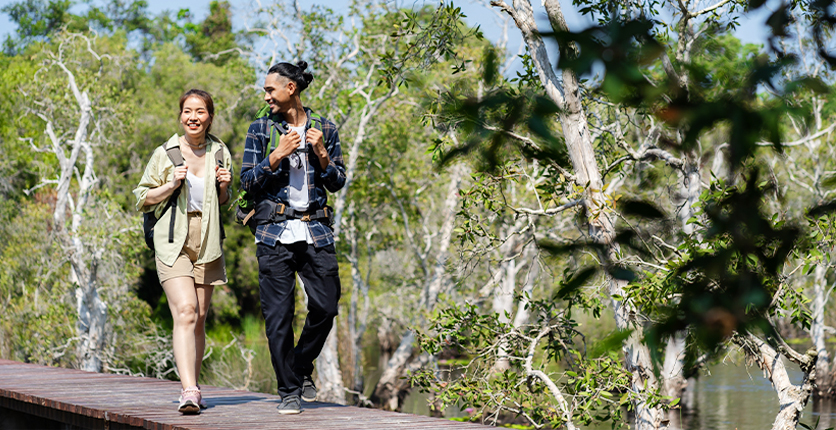
Loud noises scare and provoke some wild animals, so when you’re walking or hiking or at the park, remember to keep your voice down if you’re with other people or on the phone, and if you’re listening to music, wear headphones or earphones and keep the volume at a reasonable level.
6. Fence off your pond

Otters are attracted to places where they can find fish. If you have a pond outside your landed home with fish in it, you should make it impossible for otters to scale short barriers or slip through gaps in fencing or under gates to get to it.
NParks recommends identifying possible entry points and blocking them off. For example, use wire mesh to seal off gaps (this is often the most cost-effective method). Alternatively, cover the bottom of gates and fences with panels, modify your gates or fences to make gaps smaller, fence off your pond, or cover your pond with netting or panels.
Bear in mind: Once otters find an accessible pond with fish, they’re likely to return.
7. Keep your food out of sight while hiking
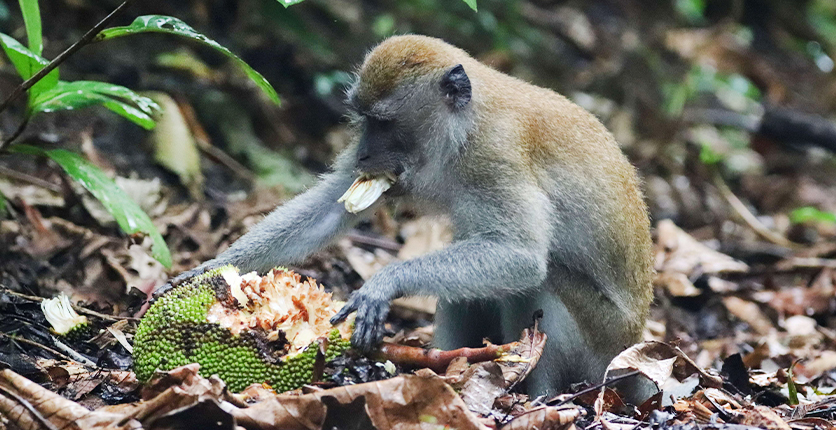
Macaques have been conditioned to recognise plastic bags and other containers as food sources, so don’t walk around or hike while carrying these, as the animals may instinctively snatch them from you when they see them. Instead, store them in your bag. If you want to throw your food away, double-knot the garbage bag and put it away in your backpack; you can dispose of it when you’re off the hiking trail.
Macaques are also naturally curious, so when they see someone carrying a plastic bag or container, they may venture out of their forest home to see what food they can grab, and this only increases the likelihood of a close encounter.
8. Watch where you’re walking

Animals like monitor lizards and snakes tend to blend in with their natural surroundings, which is why it’s important to pay attention to where you’re walking to avoid stepping on them. In the rare event that you get bitten, seek medical attention immediately, in case the bite was venomous and to minimise your risk of a bacterial infection.
Want more articles like this, and other lifestyle content right in your inbox? Download the new SAFRA mobile app and opt in for the eNSman Newsletter – you don’t need to be a SAFRA member to subscribe – and never miss another story!
Main photo: Ang Wee Foong for NParks
